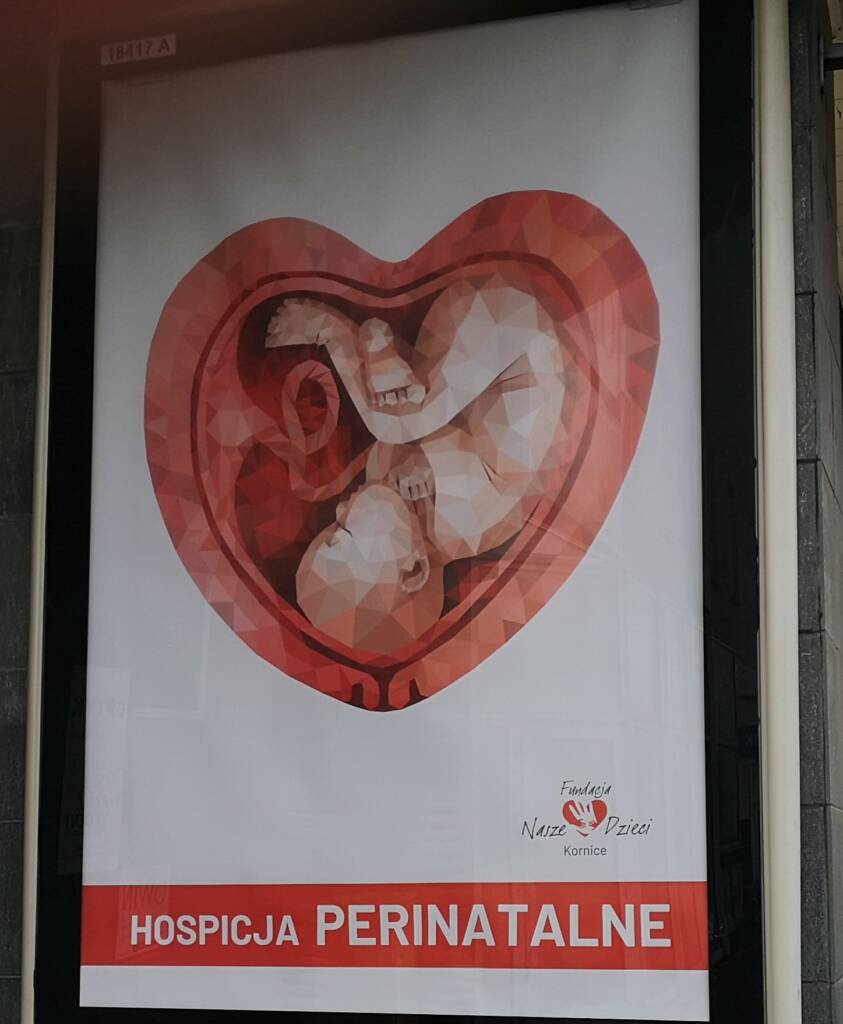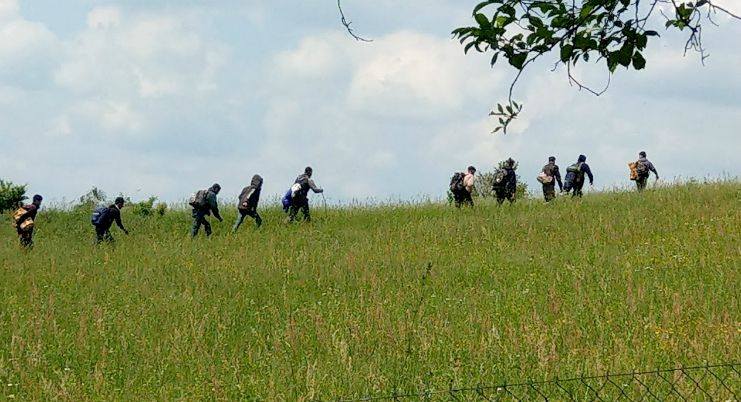Poland – On Wednesday evening the Polish government published the 22 October ruling of the Constitutional Court which declared the clause of the Polish abortion law authorizing abortions on grounds of the disability of the unborn child to be unconstitutional. In concrete terms, this means that it is no longer possible under Polish law to terminate a pregnancy when “prenatal examinations or other medical data indicate a high probability of serious and irreversible disability of the fetus or an incurable life-threatening disease”. Until now, abortion in such a case was allowed up to the 24th week of pregnancy. This condition was one of three in which abortion was permissible. The other two conditions, which remain in force, relate to cases where the pregnancy is the result of rape or incest (when abortion is permitted up to the 12th week of pregnancy) or where the pregnancy endangers the life or health of the pregnant woman (without any time limit).
1,000 to 2,000 abortions per year in the focus
The clause invalidated by the Polish Constitutional Court, which had been referred to it by 119 MPs from PiS, the agrarian party PSL, the right-wing “anti-system” party Kukiz’15, and Konfederacja, an alliance of liberal-conservatives, libertarians and nationalists, applied to over 90% of the 1,000 to 2,000 abortions performed each year in Polish hospitals. Nearly half of the abortions performed under this clause involved children affected by Down’s syndrome. When a citizen’s bill was tabled in the Sejm in 2017 (after collecting some 830,000 signatures!) to prohibit these abortions, which are described as eugenic by the pro-life movement (and also in the judgment of the Polish Constitutional Court), President Andrzej Duda announced his intention to sign such a law if it was adopted, precisely to prohibit the elimination of children with Down’s syndrome in the womb. At the end of December, when Poles were wondering why the Constitutional Court had not yet published the reasons for its 22 October judgment, the head of the PiS group in the Sejm, Ryszard Terlecki, said he hoped they would be published in January. Asked about the timing of the controversial ruling, in the midst of a pandemic, Terlecki replied that “it was always the wrong time”, and added: “We’ve always wanted to protect children affected by Down’s syndrome, so it had to happen eventually. This has caused some very violent controversy, but I think the cause is just and it will be carried out. ”
While Mateusz Morawiecki’s government should normally have published this ruling at the beginning of November, it said it was waiting for the reasons for the judgment to be provided. Officially, the Constitutional Court was waiting until a few days ago for the last dissenting opinion from one of its judges. While the judgment itself had given rise to only two dissenting opinions out of thirteen judges taking part in the hearings for the case (out of a total of fifteen members of the Constitutional Tribunal), three other judges expressed a dissenting opinion with regard to the reasons for the judgment.
Strong reactions
Similarly to when the judgment itself was handed down on 22 October, the publication of its reasons led to demonstrations on Wednesday evening at the instigation of the far-left “Women’s Strike” organization, with thinly veiled calls for violence. “We call on everyone to get out, mobilize, and march this time in a way that leaves a mark. Express your anger any way you want. We didn’t start it,” said lawyer Marta Lempart, one of the two co-leaders of the movement. A young journalist from the patriotic, sovereignist and pro-life Media Narodowe, who was covering the Warsaw demonstration, was beaten by a group of “antifa” and her operator’s camera was stolen shortly after the same Marta Lempart had called them “provocateurs” and “Nazis”, asking the demonstrators not to answer their questions while officially appealing for no violence to be committed against them.
In the opposition, where the very legitimacy of the Polish Constitutional Court is still contested (although in fact the legal conflict at the root of the challenge to the Court’s legitimacy only concerns the appointment of three out of fifteen judges), the leaders of the liberal Civic Platform (PO) and the more conservative agrarian party PSL explain that the publication on Wednesday of the reasons for the ruling of the Constitutional Court has the sole purpose “to erase the traces of the government’s defeat in the fight against Covid, the failure of the vaccination program and the drama of the business community” (according to Borys Budka, the PO leader). For the Left party (Lewica), the judgment of the Constitutional Court means “the legalization of torture of women in Poland”.
Polish right wing supports the ruling
Within the United Right, the PiS-led coalition, by contrast, there is support for this judgment. For pro-life MP Piotr Uściński, from PiS, the prenatal and post-natal support program for families with disabled children must now be strengthened. Since the pro-abortion demonstrations in October–November, pro-life associations have been running a poster campaign to raise awareness of perinatal palliative care centers as an alternative to abortion in the event of lethal fetal abnormalities, and this Thursday Michał Wójcik, vice-President of the United Poland party(SolidarnaPolska) of Justice Minister Zbigniew Ziobro, which is regarded as the right wing of the United Right coalition, proposed a set of legislative solutions to support women carrying a child with a lethal condition.
On the other hand, neither the government nor the public prosecutor’s office has reacted to the publicity given at pro-abortion demonstrations since October, and again this week after the publication of the 22 October ruling in the official journal, for a telephone number to be used by Polish women wishing to have an abortion abroad, for example in neighboring Slovakia. The offering of such assistance is illegal in Poland and punishable by imprisonment, but convictions, even with the most lenient sentences, are extremely rare.





